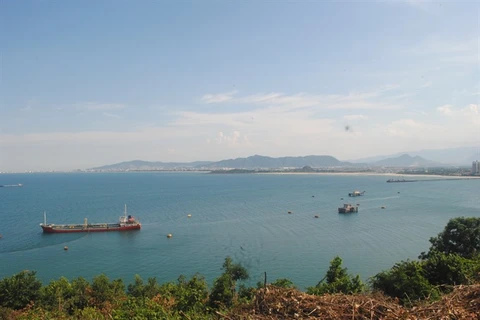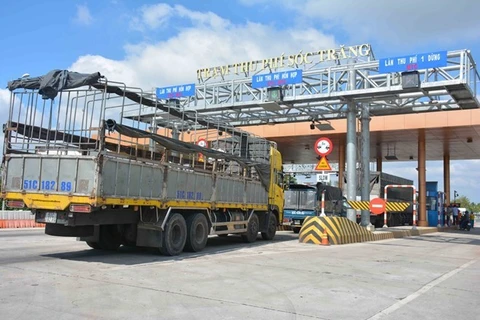Hanoi (VNA) - The Government will abolish administrative procedures for issuing investment registration certificates for Public-Private-Partnership (PPP) projects, according to the government’s Decree 63.
This is one of the key contents of the newly-issued decree on investment under the PPP model, which is set to replace a previous one. It will come into effect on June 19 this year and is expected to simplify administrative procedures and save time for investors.
Deputy Minister of Planning and Investment (MPI) Vu Dai Thang said that the PPP investment model was not new in Vietnam. It had been developed with the participation of the private sector and foreign investors at different levels. There were infrastructure projects, notably those in the transport and energy sectors, that had been deployed.
With some important amendments, Thang said the new decree introduced regulations and made procedures for PPP projects clearer and more transparent. Meanwhile, the authority to decide PPP projects was also detailed.
“This increases transparency and publicity in PPP investment projects. The abolition of the procedures for issuing investment registration certificates for PPPs will contribute to simplifying administrative procedures for investors,” said Thang.
With the new points introduced in the decree, Thang said he hoped that there would be practical innovations in the implementation of the PPP model for ministries, departments, provinces, localities and investors in the future.
To overcome the problems arising from this abolition, ensuring that information on the project contract is publicly supporting State management agencies and the communities in supervision, the decree supplemented the regulation on the disclosure of project contract information. The contractors are required to make their bids accessible to the public on the National Procurement Network (NPN).
Tran Viet Dung, Chief of the Office of the MPI’S Procurement Management, said that Decree 63 also contained some other important new points such as strengthening decentralisation (more authority given to localities), self-control and self-responsibility at ministries, sectors and localities.
Dung said it was necessary to remove the investors who were weak in financial capacity, increase participation of the State in PPP projects and vice versa, and strengthen participation of investors in public investment projects converted to PPP projects, helping reduce the burden on the State budget.
At the meeting, the participants also discussed and gathered ideas for the orientation for the development of the circular guiding the implementation of the Decree 63.-VNS/VNA
This is one of the key contents of the newly-issued decree on investment under the PPP model, which is set to replace a previous one. It will come into effect on June 19 this year and is expected to simplify administrative procedures and save time for investors.
Deputy Minister of Planning and Investment (MPI) Vu Dai Thang said that the PPP investment model was not new in Vietnam. It had been developed with the participation of the private sector and foreign investors at different levels. There were infrastructure projects, notably those in the transport and energy sectors, that had been deployed.
With some important amendments, Thang said the new decree introduced regulations and made procedures for PPP projects clearer and more transparent. Meanwhile, the authority to decide PPP projects was also detailed.
“This increases transparency and publicity in PPP investment projects. The abolition of the procedures for issuing investment registration certificates for PPPs will contribute to simplifying administrative procedures for investors,” said Thang.
With the new points introduced in the decree, Thang said he hoped that there would be practical innovations in the implementation of the PPP model for ministries, departments, provinces, localities and investors in the future.
To overcome the problems arising from this abolition, ensuring that information on the project contract is publicly supporting State management agencies and the communities in supervision, the decree supplemented the regulation on the disclosure of project contract information. The contractors are required to make their bids accessible to the public on the National Procurement Network (NPN).
Tran Viet Dung, Chief of the Office of the MPI’S Procurement Management, said that Decree 63 also contained some other important new points such as strengthening decentralisation (more authority given to localities), self-control and self-responsibility at ministries, sectors and localities.
Dung said it was necessary to remove the investors who were weak in financial capacity, increase participation of the State in PPP projects and vice versa, and strengthen participation of investors in public investment projects converted to PPP projects, helping reduce the burden on the State budget.
At the meeting, the participants also discussed and gathered ideas for the orientation for the development of the circular guiding the implementation of the Decree 63.-VNS/VNA
VNA
























